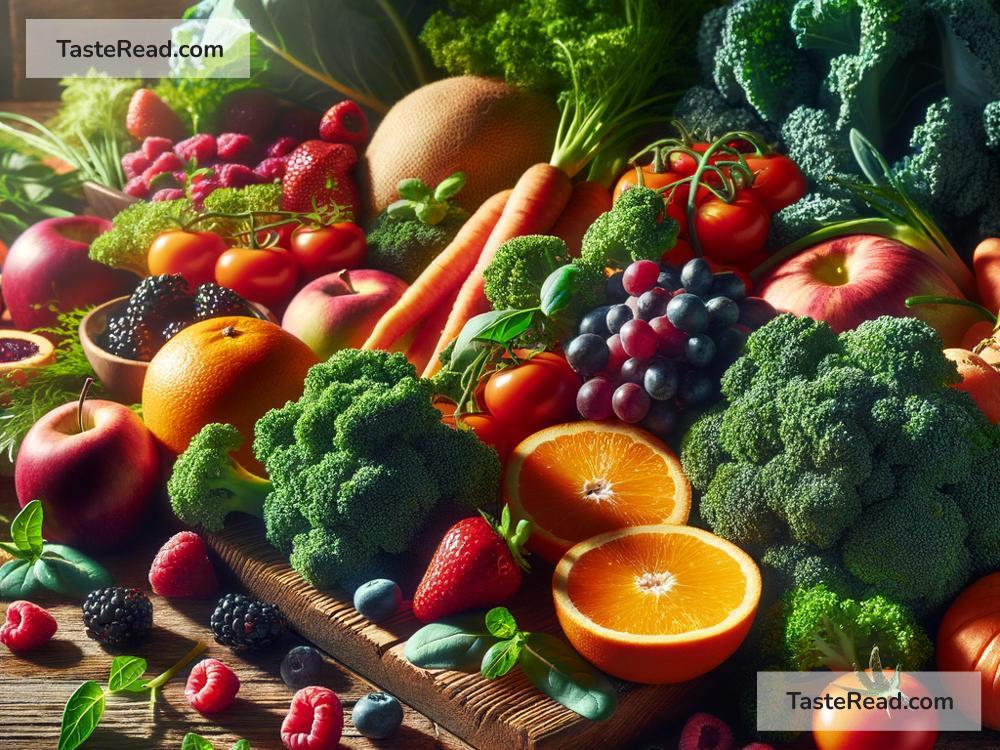Understanding the Role of Phytochemicals in Health
When we think about staying healthy, we often think of exercise, drinking water, getting enough sleep, and eating fruits and vegetables. But have you ever wondered why fruits and vegetables are so good for you? One of the key reasons is phytochemicals—tiny compounds found in plants that can greatly benefit your health. In this article, we will explore what phytochemicals are, why they’re important, and how you can include them in your diet.
What Are Phytochemicals?
The term “phytochemicals” might sound complicated, but it’s simply a fancy word for chemical compounds found in plants (“phyto” means “plant” in Greek). These natural substances help protect plants from diseases, pests, and other environmental challenges like harsh weather or UV rays from the sun.
Here’s the cool part: when humans eat foods containing phytochemicals, they can also provide protection for our bodies! Essentially, they work like tiny warriors fighting off damage within our cells and supporting our overall health.
Scientists have identified thousands of phytochemicals, and they continue to discover more every year. Some of the most well-known groups of phytochemicals include flavonoids, carotenoids, polyphenols, and glucosinolates. Each type of phytochemical plays a unique role in your health.
How Do Phytochemicals Benefit Your Health?
Phytochemicals may not be considered essential like vitamins or minerals, but they offer powerful benefits that can help prevent diseases and promote better health. Here are some of the amazing ways phytochemicals support our well-being:
-
Fight Free Radicals
Free radicals are unstable molecules in the body that can damage cells and cause inflammation. Think of them like little troublemakers. Phytochemicals, particularly antioxidants like flavonoids and polyphenols, help neutralize free radicals and prevent harm to cells. This reduces the risk of chronic diseases like heart disease and cancer. -
Boost the Immune System
Some phytochemicals stimulate your immune system, helping it work more efficiently to fight off viruses and bacteria. -
Lower the Risk of Chronic Diseases
Studies show that phytochemicals can reduce the risk of diseases like heart disease, type 2 diabetes, and certain types of cancer. For example, sulforaphane, a type of glucosinolate found in broccoli and cabbage, has been shown to help protect cells from turning cancerous. -
Improve Heart Health
Phytochemicals like flavonoids, found in foods like berries, tea, and dark chocolate, can help reduce blood pressure, improve cholesterol levels, and keep blood vessels healthy. All of these actions support better heart health. -
Help with Brain Health
Some phytochemicals, particularly those found in berries and nuts, have been linked to improved cognitive function and memory. They may even play a role in lowering the risk of Alzheimer’s disease. -
Support Eye Health
Carotenoids such as lutein and zeaxanthin, found in spinach and kale, promote healthier eyes and may protect against age-related vision problems.
Where Are Phytochemicals Found?
The best sources of phytochemicals are plant-based foods like fruits, vegetables, whole grains, nuts, seeds, herbs, and spices. Each type of food contains a unique set of phytochemicals, so it’s important to eat a wide variety to maximize their benefits.
Here are some examples of phytochemical-rich foods:
- Colorful Fruits and Vegetables: Berries, oranges, carrots, spinach, and tomatoes contain a variety of powerful plant compounds.
- Tea: Green tea and black tea are rich in polyphenols that support heart health.
- Whole Grains: Quinoa, oats, and brown rice contain phytochemicals that promote gut health.
- Nuts and Seeds: Almonds, walnuts, flaxseeds, and chia seeds are packed with phytochemicals and healthy fats.
- Herbs and Spices: Turmeric, ginger, garlic, and cinnamon are loaded with plant compounds that fight inflammation and help maintain a healthy body.
Tips for Eating More Phytochemicals
Adding phytochemicals to your diet doesn’t have to be difficult. Here are some simple tips to get started:
-
Eat the Rainbow: The different colors in fruits and vegetables represent different types of phytochemicals. For example, red foods like tomatoes contain lycopene, while orange foods like carrots contain beta-carotene. Aim to eat a colorful variety each day.
-
Snack Smart: Replace processed snacks with phytochemical-rich foods like nuts, seeds, fresh fruit, and vegetable sticks.
-
Add Herbs and Spices: Use fresh or dried herbs and spices in your cooking to boost flavor and phytochemical content.
-
Choose Whole Foods: Whole grains, nuts, fruits, and vegetables are much better sources of phytochemicals than processed foods.
-
Try Plant-Based Meals: Experiment with meatless dishes that feature beans, lentils, or tofu, paired with vegetables and whole grains.
Final Thoughts
Understanding the role of phytochemicals in health can encourage us to make smarter food choices. These tiny compounds work behind the scenes to protect our bodies, reduce the risk of diseases, and keep us feeling great. By eating more fruits, vegetables, whole grains, nuts, seeds, and spices, you can easily incorporate phytochemicals into your daily diet.
So the next time you pile your plate with colorful produce, remember that you’re not just eating healthy—you’re inviting nature’s superheroes into your body to fight for your health!


